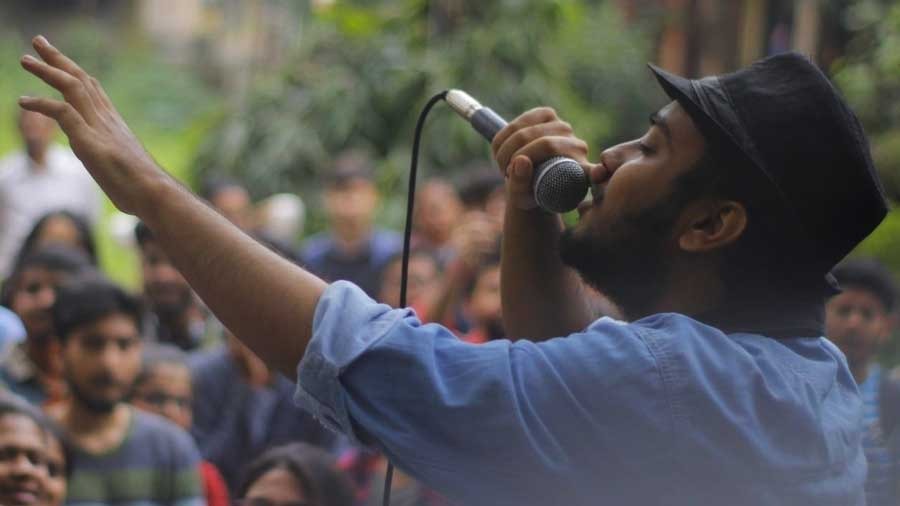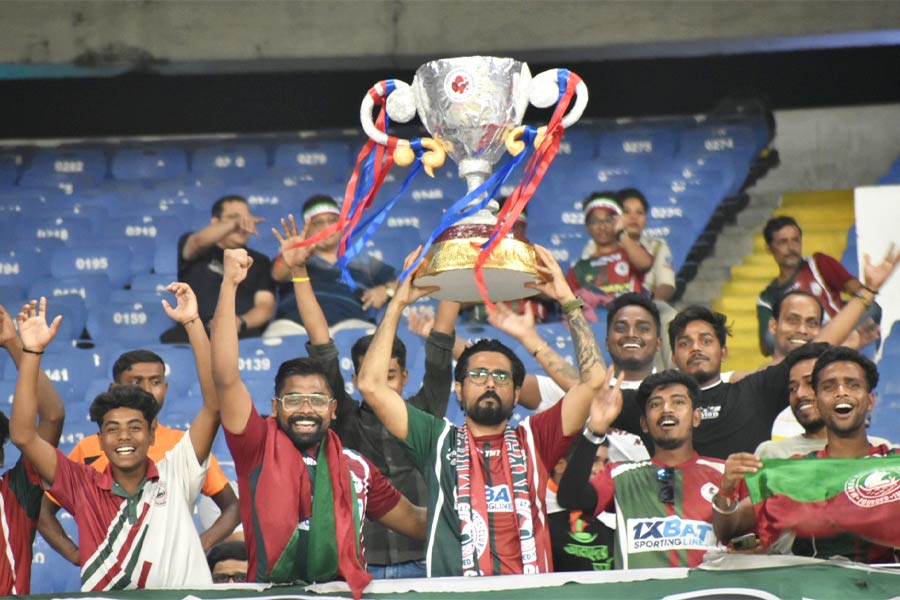Move over Gully Gang and Jamnapaar mundas, it is time for regional rappers to take centrestage. Rap in India started with the English-language rappers, because the influence was essentially American. But it wasn’t before the artistes started rapping in Hindi and Punjabi and about local issues that desi rap became relatable and started developing an audience base.
In its third wave, it has become more localised, regional and is proving to be a super spreader. It is ‘apna time aa gaya’ for vernacular rap. And among the names that are making all the right noises is Kolkata-based rapper Cizzy, aka Rounok Chakraborty. In fact, when asked in an interview, Naezy had mentioned him as one of the most interesting sounds coming from this corner of the country.
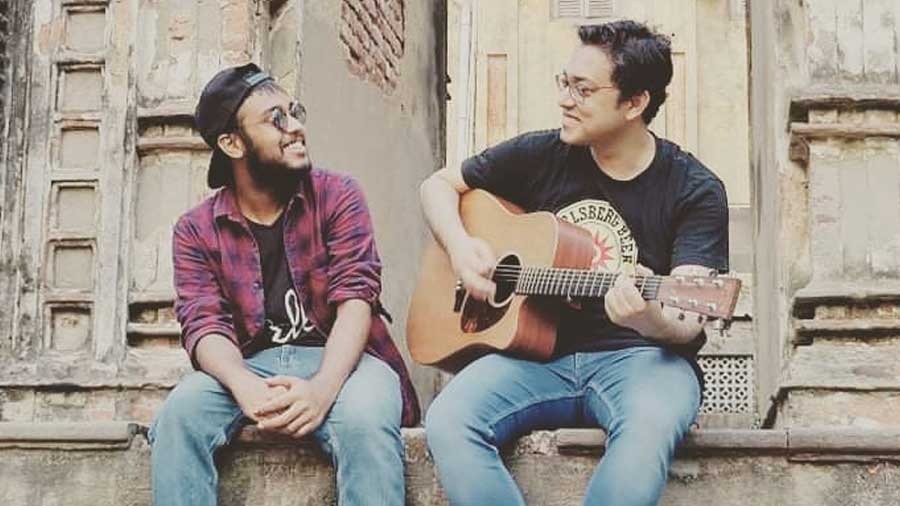
Cizzy collaborated with Anupam Roy on his single, ‘Manush Bhalo Nei’
@shuvarupsadhukhan/Instagram; @thisiscizzy/InstagramThe 27-year-old BTech engineer, who spent his early childhood in Howrah and later shifted to Kasba as a 5-years-old, has been rapping since 2010. “Kolkata has become a major part of who I am, who I became,” says the rapper, whose viral hits like Kolkatar Rasta, Beat Dhongsho, Middle Class Panchali, etc., are steeped in the milieu of present-day Kolkata. “Kolkata is always prevalent in my songs, even when the song is not about Kolkata, because that is where I draw all my inspiration from. Even when I’m producing music, I am always looking for the sound which defines the vibe of Kolkata and West Bengal as a whole,” he says.
Change Hobe Puro Scene, released last year, explored the emotions of quarantined life. He has also collaborated with Anupam Roy on his single, Manush Bhalo Nei — a song that has garnered more than 167,000 views since its release on May 21. We spoke to the Kolkata boy, who explains his sound as “Inclusive experimental music for niche intellectual music listeners”. Excerpts:
My Kolkata: What was the soundscape around you while growing up?
Cizzy: I grew up in a very musical atmosphere. Most of my family members are either musicians or avid listeners of different kinds of music. From Rabindrasangeet to Kabir Suman, from Bangla rock to folk, and from contemporary music to protest music (ganasangeet), I was always listening to a variety of sounds while growing up. I started learning Hindustani classical music at the age of five. Also, around the same time, I started reciting Bengali poetry at All India Radio Akashvani. Later on, along with Hindustani classical, I also learnt Rabindrasangeet, Brahmasangeet, folk etc, and picked up a few instruments along the way as well.
While growing up, were you the kid always called to perform whenever there were guests at home?
I used to be very shy and introverted when I was growing up. But I was always very open to performances. I loved music and reciting poems. There was a turning point in my childhood when I had to change my school and I learnt to be more open. That is when I discovered hip-hop. It became my medium and at the same time, a source of inspiration. I started leading a community when I entered college, so naturally I developed abilities to lead from the front. Just a handful of my school friends knew that I’m into rapping. But when I entered college, I was already known as ‘the rapper guy’. I was already in a band when I joined college, so I performed in other colleges before performing in my own college!
How did you get introduced to rap music, especially since Kolkata hardly had a hip-hop scene?
I always had a knack for rhythm. Later in my life, when I discovered Linkin Park, I instantly became a follower of Mike Shinoda. His productions and song-writing amazed me. I started rapping in English and I was basically creating my own versions of popular Linkin Park songs in my diary. Later, I shifted to writing in Bangla because it's my mother tongue and also, I could write a lot better in this language. I have always been a great fan of Bangla literature, so Bangla rap came to me naturally.
When did you write your first proper song? What made you continue in Bengali?
I was probably 20 when I wrote my first full Bengali verse. I was writing a verse for my city and I couldn’t find better words in any other languages. It had to be the language that I grew up reading. Also, social awareness has always been one of my primary goals while writing and being vernacular means I could actually reach out to my target audience. The ones whom I’m trying to approach may not feel comfortable if they feel that the narrator is an outsider. I had to become one of them. Unless they relate to it and realise the problem, they’ll never work towards the solution. I have tried rapping in Hindi too, but I hardly know the language, so that didn’t work out. I still rap in English at times, but Bengali is my primary language when it comes to making songs for my city.
What were the reactions of your parents and close friends when they heard it?
My whole family is into music and when they learnt that I’m tapping into this form of music, they appreciated me and have been my biggest supporters till now. My mother is my biggest critic, she did her a Masters course in music and she is a great vocalist and instrumentalist. She is always the first one to review my songs. My father used to be my biggest fan until he passed away last year. My mashi was the reason I got into literature. All of my aunts and my cousins are either music enthusiasts or musicians themselves, so they were really supportive as well. My grandmothers and grandfathers used to work with some legendary musicians from the country like Salil Chowdhury, Hemanga Biswas, Timir Baran etc., to name a few. My mother’s father was a recordist at All India Radio and he played the esraj in Mahisasuramardini, the piece that all Bengalis are proud of even now. So, coming from a family like that, it was not much of a surprise when I took up music as a career.
How do Rabindrasangeet-loving Bengalis react to rap in general?
Yes, it’s true that when I started off, hip-hop was an alien culture — not just in Kolkata, but the whole country. But Linkin Park had a huge audience base here because of the rock music revolution in our city back then. Also, Bengali music always had influences of rap in folk forms such as Kaviyal (Tarja) etc, and our literature was also heavily focused on rhythm and poetry because of the legends like Sukumar Ray, Rabindranath Thakur, Satyajit Ray, Lalon Fakir, Kazi Nazrul Islam, Samaresh Majumdar, Shankar etc.
Tell us about your experience rapping in this city.
I used to rap for myself mostly, because I enjoyed it. I was inclined towards music production more. This was until Philip, AB and Souvik, my first crewmates, dragged me into the world of rapping. We formed a crew called Agenda Alliance. David joined us as a singer later. In my first year of college, I came across a twin duo called K-Krew and an Indian hip-hop veteran, Hardknok. I was also a part of a Bangla rap band called Somoy back then. I performed at a lot of college fests with them, and that’s how the journey began. Then I formed a community for the local rap enthusiasts called The Cypher Projekt and started hosting cyphers every Sunday. We have been doing that for 11 years and we will resume again once the pandemic is over.
Gradually, my brainchild TCP became a platform for all upcoming rap enthusiasts and now it is synonymous with rap in West Bengal. At these weekly cyphers, I meet like-minded individuals and the goal is to learn from each other and grow together.
What are the advantages of rapping in Bengali?
There used to be a common saying among the older generation that our generation is not into Bengali literature anymore. But ever since my Bangla rap songs became popular, even kids who are studying in English-medium schools have picked up the songs and Bangla rap fever is spreading like wildfire. The charm of Bangla poetry is back with Bangla rap in a newer and cooler way. Some of my tracks like Kolkatar Rasta, Beat Dhongsho, Middle Class Panchali, Kolkata, Change Hobe Puro Scene, Prochondo Borsha etc., have inspired a lot of people to start writing in Bangla. A lot of them are talking about their individual experiences and that’s bringing a huge amount of perspective to the larger audience. Localised and marginalised issues are being highlighted and at the same time it’s easy for anyone to understand.
Although vernacular rap seems to be on the rise, don’t you think since in rap music, words are most important, rapping in regional languages alienates pan-India listeners?
I agree to it, to some extent. But I believe when music is done right, it transcends the boundaries of languages, countries etc. My primary goal was to establish Bangla rap as a sound in my hometown. I’m really close to achieving that goal. Once I cross that landmark, my next goal is to take this sound to the international level. If I have to introduce English language in my music in order to achieve that, I’ll make sure I find the perfect balance.
Who were the major influences when it comes to your writing and rapping style?
One of my major influences is the senior Ray — Sukumar Ray. I draw inspiration from his writing style heavily. I’m a fan of Satyajit Ray's writing too. I actually prefer his literature a lot more than his work behind the lenses. But some of his visual works such as Nayak, Gupi Gyne Bagha Byne, Jana Aranya, etc., has helped me shape my perspective while growing up. I learnt to look and conceive things differently. People like him and Rabindranath Thakur have taught me to be a dreamer and to work hard to get where I want to go in terms of skill level. These inspirations constantly push me to be a better version of myself. In that journey, if I can inspire some people then I believe I will certainly reach my ultimate goal. I am a musician, a writer, a theatre actor, a creator and last but not the least, a dreamer. My dreams define who I am.
In terms of writing style, one of my major influences has been Mike Shinoda. I started rapping listening to him. Musically, I draw my influences from everything I hear and read. Lupe Fiasco, Chance The Rapper, Mac Miller, Lil Wayne, Biggie, Bob Dylan, John Denver and Ray Charles are some of the musicians I follow. I write about everything I see around me and the experiences I gather. My city has played a major role in shaping me as an artiste. I think of my writing as investigative journalism and in the end, I try to put some hope or a pinch of solution to the problems of the society which I address in my music. My musical style varies because I like to experiment and I don’t want my next song to sound anything like my previous releases, that’s what keeps me going.
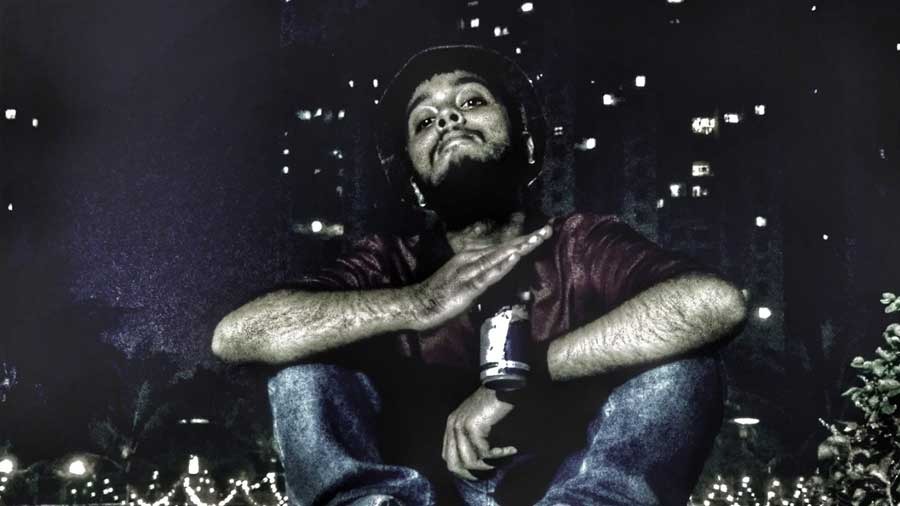
‘My city has played a major role in shaping me as an artiste; I think of my writing as investigative journalism,’ says the rapper
@Cizzy/FacebookIs rapping a viable career option, especially in Kolkata?
Music is not considered as a career option anywhere in this country. For me, music comes first because the adrenaline rush I get every time I get on the stage is irreplaceable and I can’t trade it for anything else. Also, experimenting and coming up with a sound, which is going to define my city, has been a lifelong dream. But since it is not that viable yet, in terms of economic growth, I have switched between five jobs till now. I have worked in multiple sectors, developed skills and applied that into my career in music. I currently work in a studio as a music producer and sound engineer to pay for my passion in music. Until there’s a parallel music industry, which is fuelled by its own set of audience, it will not be economically self-sustainable. But I’m hopeful that that day is not too far.
What is the current rap scene in the city like? How has it changed since the time it started?
Currently, there’s a bevy of rappers in the city. When I started hosting cyphers, we would hardly have two-three people and now, a regular cypher has an average crowd of 50-60 people. And the rap enthusiasts are not just confined to Kolkata. We have rappers across the state and most have their own individual sound and lyrical content. With some of our initiatives starting from Mora Gaang (2016 - theme song of MTIFF), Ilaka Rap Campaign (2017 - Red FM), to The Bridge (2021 - Mr. Babu), and with record labels coming up to support Bangla rap, it has opened the door to endless potentials.
Mumbai has its gully rap and then you have the thriving Delhi scene that is an interesting mix of commercial and underground; do you see Kolkata catching up anytime soon?
Kolkata has always been a hub for experimental music. It’s never been part of competitions. But with the varied styles of unique flows and lyrical abilities, West Bengal rappers are a force to be reckoned with.
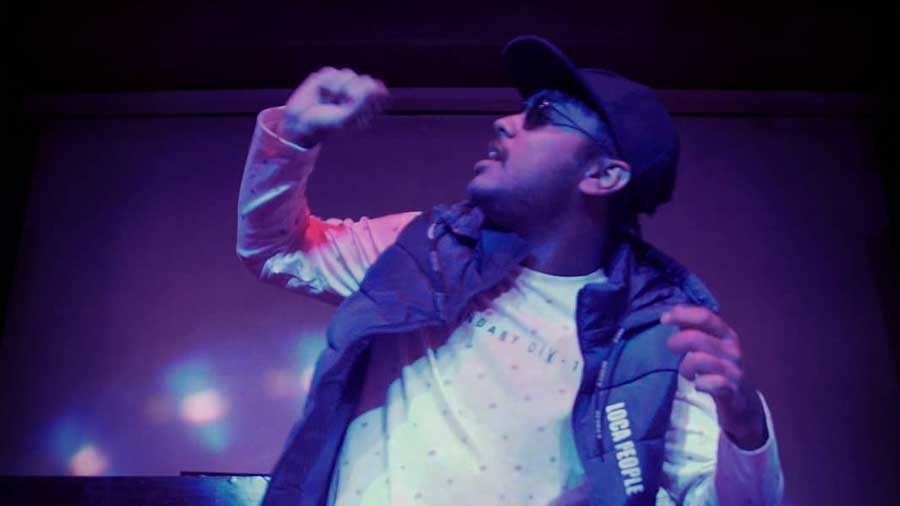
‘One of my major influences is the senior Ray — Sukumar Ray. I draw inspiration from his writing style heavily,’ says Rounok
@thisiscizzy/InstagramHow do you think Gully Boy changed the rap scene in India, if at all? Do you think it made it too commercial for its own good?
Gully Boy was a huge step for the rap scene in India. But much before that, we had a rap-based movie in Bengal. Gandu, directed by Q, was one of the major reasons why I got committed to Bangla rap. Gully Boy, being a commercial film, opened the doors for underground artistes and gave them mainstream exposure. Industry heavyweights started showing interest in rappers. And with that, money started flowing in. At the same time, the movie inspired a lot of youngsters to take up rapping. However, with the sudden surge in quantity, the quality suffered and you had a gaggle of ‘gully boys’ mushrooming everywhere who sounded like an echo of one another. Individuality got lost in the crowd. But I believe, with time, it will be restored and no one can deny that it was a huge representation of the Indian rap scene to the whole world.
Rap songs have always been a ready vehicle to drive home social concerns and issues; it has been an apt format for protest songs. Amid these turbulent times, what is your take on that?
Music is an important document in the pages of history. So, obviously when my music is discovered in the future, I want people to know about everything that happened around me. I want to narrate the stories of the present to the future and that is the reason I write. It can be protest music, or it can be about something very simple. In retrospect, all of that would make sense. My songs don’t address social issues like, this is bad or this is good. I am only the narrator of what I see around me, but I also provide my own perspective, which people can relate to and use as a weapon to fight against the corruption within them. We are all part of the problems, but we can find the solutions together. This is the history we create. This is how we evolve. This is what I choose to talk about in my songs.


